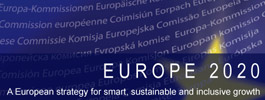by Xavier Prats Monné, Director-General of DG Health and Food Safety, European Commission

The ultimate goal of the Cross-border Healthcare Directive is to provide all EU citizens with equal access to quality healthcare, responding to their specific needs. Whether that means seeking a second opinion in another Member State or taking a child with a rare disease to a specialist on the other side of the EU, people need the reassurance that they will receive the best care possible and that they will not be left to shoulder the financial burden alone.
One of the important challenges ahead of us, confirmed also in a recent Eurobarometer survey, is to ensure that patients are informed about the options they have and about the procedures that they need to follow in order to benefit from cross-border healthcare opportunities. However, currently fewer than one in ten Europeans know where to find relevant information, and four out of five people feel uninformed about their cross-border healthcare rights.
But important questions on seeking healthcare abroad do arise: is a referral needed, what about a prior authorisation, will patients be reimbursed, can they seek follow-up care at home or abroad, are preventive measures covered, are they covered if the patients work in one country and live in another?
We are thus happy to report that we have reached an important milestone: all EU Member States now have at least one National Contact Point (NCP) in place where people can find out more about their patient rights and options, and can look for answers to the type of questions exemplified above. Each of these NCPs has their own dedicated, multilingual website, and the European Commission provides support by helping to clarify issues related to both the Directive and to Social Security regulations.
At the same time, we encourage NCPs to network and share expertise and experiences, to ensure transparency and to be the safeguard against those who might wish to take unfair advantage of more open and fair cross-border healthcare opportunities. In time, and in response to demands from the civil society, the NCPs' role might expand further so they will be able to provide also more specific information, for example information to patients with rare diseases on the way to access appropriate services and expertise offered in the patient's own home country or facilitate contact with other NCP abroad.







